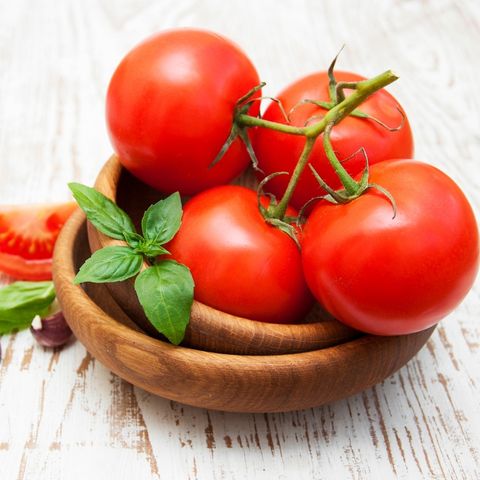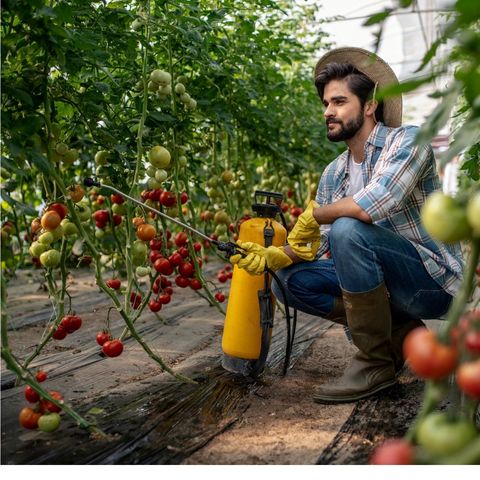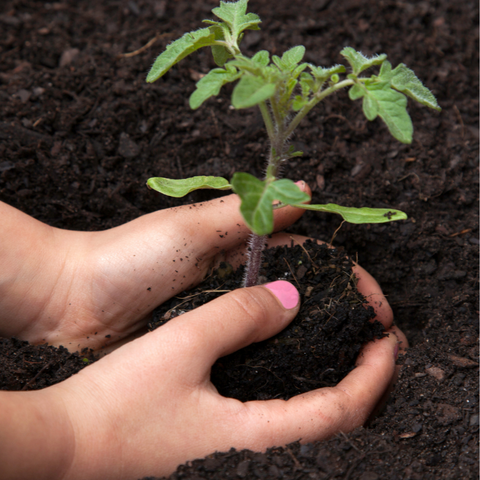Tomato nutrition is essential for a healthy diet. But how do you know if your tomatoes get the most nutrition? Is it better to get them from natural farming or chemical farming? There are some significant differences between the two methods, so read on to find out which is best for you!
Tomatoes are one of the most loved and consumed fruits in the world. They are rich in nutrients and are a great source of antioxidants. But did you know that the natural process of growing tomatoes is much different than the method used in chemical farming? This blog discusses the difference between the two processes, the benefits of natural farming, and the science behind it.
1. Nutrition in Tomato: The importance of nutrition in tomato
Nutrition in tomatoes is vital to make the tomato taste and have good colour. There are many nutrients in tomatoes that will make them taste good. Essential nutrients that make a tomato taste good are Vitamin A, Vitamin K, Vitamin C, Potassium and Iron. There are more nutrients in tomatoes, but these are the most important.
If you have been to the supermarket to purchase tomatoes, you would have noticed that they are available in two kinds – organic and non-organic. Many fail to understand why the former is more expensive than the latter. For some people, it is just a matter of taste and preference. But if you want to know why organic food is more expensive, it is because it is expensive to produce. Organic farmers are compelled to grow their crops in an environment-friendly way, using natural methods and materials. Organic farming involves no pesticides, meaning they must produce many crops to compensate for the reduced yields. And organic manures being used, the nutritional content of organic tomato or any other food is higher than non-organic.
2. Natural Farming vs Chemical Farming: Disadvantages of chemical farming
Natural farming and chemical farming are two different ways to grow crops. Natural farming is also called organic farming. It does not use any chemical fertilizers or pesticides. In natural farming, the soil produces fertilizer from crop residue, animal waste and compost. It relies on crop rotation, mulching and other techniques to control weeds, diseases and insect pests. The main aim of natural farming is to keep the soil fertile. However, the main aim of chemical farming is to produce crops at the maximum possible rate. In chemical farming, crops are grown with the help of chemical fertilizers, pesticides and herbicides. The main aim of chemical farming is to maximize production.
Chemical farming is a method of farming that uses chemicals such as fertilizers, pesticides, and herbicides. It is the most widely used form of modern farming in developed nations. The adverse effects of chemical farming on humans and the environment are becoming a growing concern. Many people choose to take the healthier route by switching to natural farming.
3. Natural Farming vs Chemical Farming: Advantages of natural farming
Natural farming is a system of agriculture that relies on ecosystem principles and natural resources such as sunlight, air, rain, and healthy soil. Natural farming does not use manufactured fertilizers, herbicides, pesticides, or genetically modified seeds. Natural farming can be used with organic farming, but it extends beyond organic farming.
Natural farming practice is designed to minimize environmental damage, resulting in healthier soil, higher yields, and a system that doesn't rely on synthetic fertilizers and chemical pesticides.
4. Importance of natural farming: Importance of natural farming and its benefits
Natural Farming is Organic Farming. It is the most natural way of farming. Natural farming is based on "using the best of nature to control nature," essentially a holistic approach to agriculture. Natural Farming is not a farming technique; it is a philosophy aiming to adequately utilise the resources available in agricultural fields. Natural Farming is a management system that uses the inherent properties of agricultural ecosystems to achieve sustainable agriculture over a long period of time. Natural Farming is an environment-friendly, sustainable, profitable and economically viable farming method. Natural farming is a system of agriculture that can be practised by anyone, anywhere in the world, as it does not have any ownership patent.
We hope you enjoyed reading this blog on the Nutrition of tomatoes. Did you know the nutritional value of tomatoes can vary greatly depending on the type of farming they’re grown in? If you're thinking about eating healthier, you should use natural farming techniques.
Be Blessed!
Nalini Murthy




